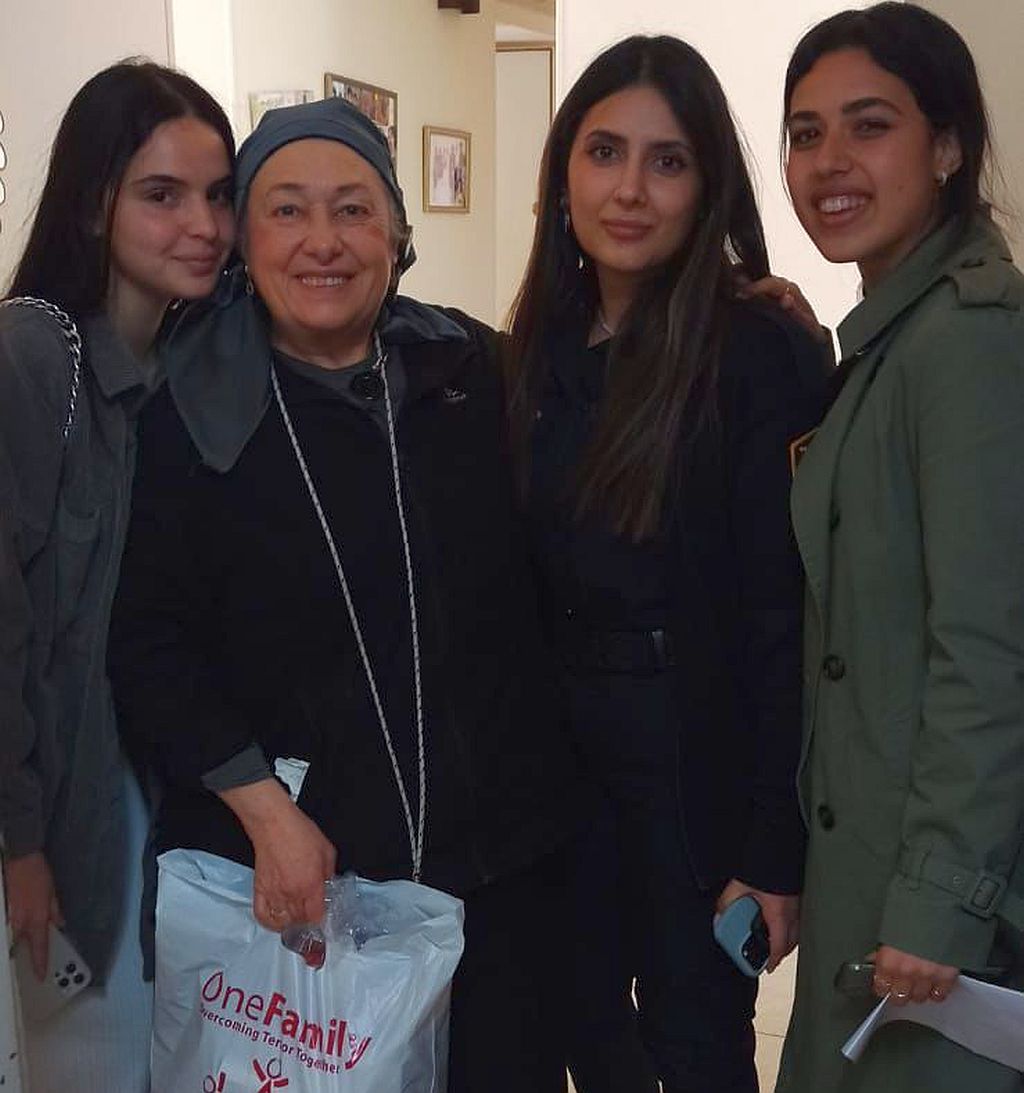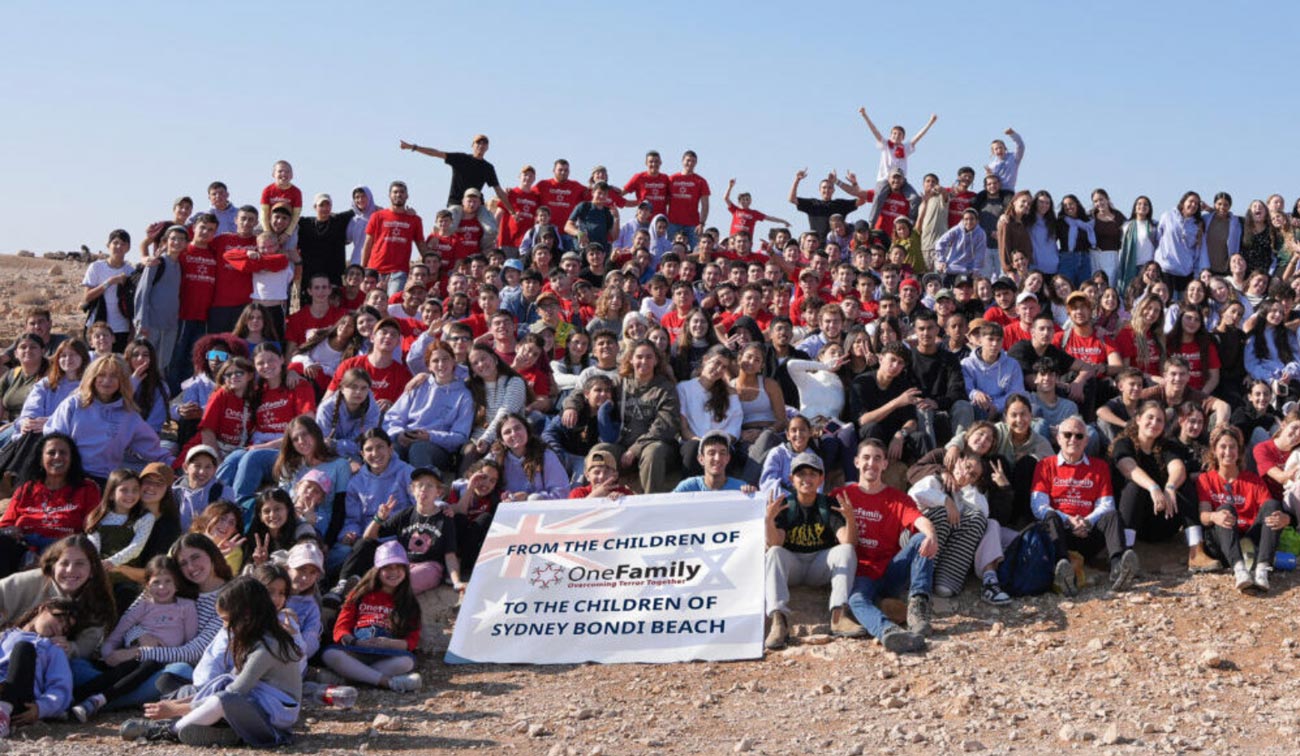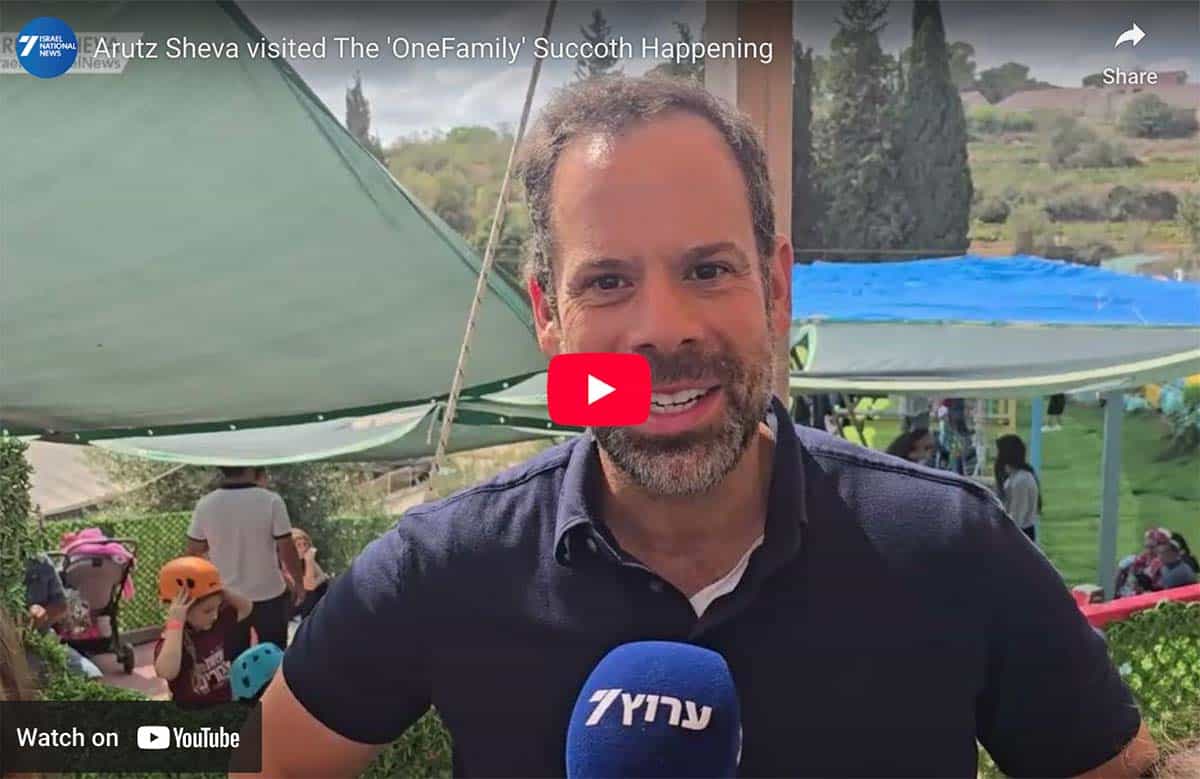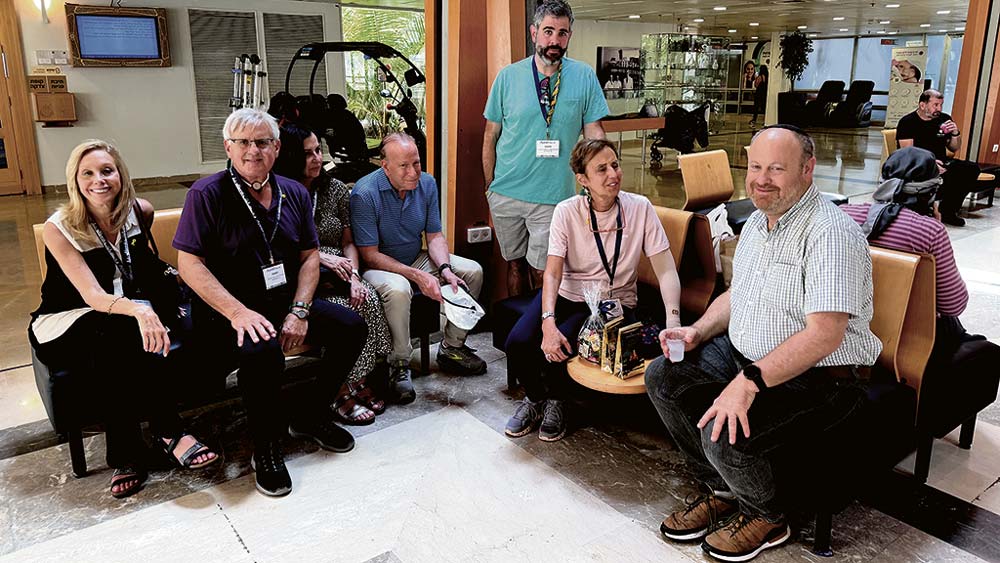Published in The Jewish Press (Original article)

Israeli police officer Shlomit Natan delivers mishloach manot.
Shlomit Natan, a Community Relations Officer with the Israel Police, is herself a survivor of terror — and used her experience to lead others from the horror back to living their lives.
Natan survived a brutal terror attack in 2003 which claimed the lives of seven people and left more than 50 others injured at Cafe Hillel in Jerusalem.
In her police uniform, she represents everything the Israeli public is looking for today – protection, reassurance, and heroism.
Like most survivors, Shlomit continues to heal from the trauma she experienced in 2003 from the attack and for her, healing includes uplifting other victims of terror and their families.
Shlomit bridged her personal and professional lives by creating a project to facilitate the distribution of Purim gift baskets (mishloach manot) to terror victims and their families.
Following the attack, Shlomit was helped by OneFamily, Israel’s largest organization supporting victims of terror and their families. She recalled how touched she had been to receive mishloach manot from the organization, and enlisted her local unit to deliver the packages.
The collaboration scaled nationally during the pandemic and this year the program expanded further to include Israel’s Border Police.
The joint initiative is bringing comfort and Purim cheer to many newly bereaved Israelis dealing with traumatic loss while fostering stronger ties between police officers and their communities.
Shlomit understands firsthand the profound impact of this project. Victims of terrorism receive little government assistance and often feel abandoned as they deal with their trauma alone, she says. “OneFamily saved me. When I’m with them, no one judges me or looks at me differently. They accept me for who I am.”
The mishloach manot are more than a holiday gift for victims and their loved ones. Shlomit says they signify that “someone is thinking of you,” adding that the project “brings light into the darkness” for those who need it most.
For both victims and members of the police, the mishloach manot serve as a gateway to meaningful connections. The deliveries create an opportunity to meet, speak, and learn about one another.
“You see people on the street, but you don’t necessarily know what they’ve been through,” Shlomit explains. “This is a beautiful initiative that helps build greater understanding for both the police and those in the neighborhoods they serve.”

Israeli police officer Eden Dadon delivers mishloach manot.
Among the police officers volunteering to deliver the packages is Eden Dadon, who miraculously survived a bus bombing in 2016. The explosive detonated directly under her seat, sending the entire bus into flames and injuring both Eden and her mother.
“This a joyful time in the Jewish calendar, but it is mixed with much sadness this year,” said recipients Orly* and David,* who live in Kibbutz Evron and received mishloach manot. “With OneFamily’s assistance and thanks to the beautiful mishloach manot delivered by a kind police officer, we are finding ways to enjoy this time despite our pain.”
The complex operation began a month before Purim, with the organization preparing the contents of the packages and distribution lists.
OneFamily reports that tequests for assistance have more than tripled since October 7. The organization, a recipient of this year’s prestigious Genesis Prize, says more than 450 volunteers from Israel and abroad helped assemble 2,500 packages for the mishloach manot now being delivered.
“Purim will undoubtedly feel and look different this year; our country is grappling with unprecedented trauma and pain,” says OneFamily CEO Chantal Belzberg.
“The mood is in direct contrast to the spirit of happiness and joy associated with the holiday, yet we hope to remind victims of terror and their families that they are not alone, that we are here to help them every step of the way.
“We extend our thanks to Shlomit, the Israel Police, and the Israel Border Police for assisting us to reach victims living across the entire country.”
* Names changed for privacy.





